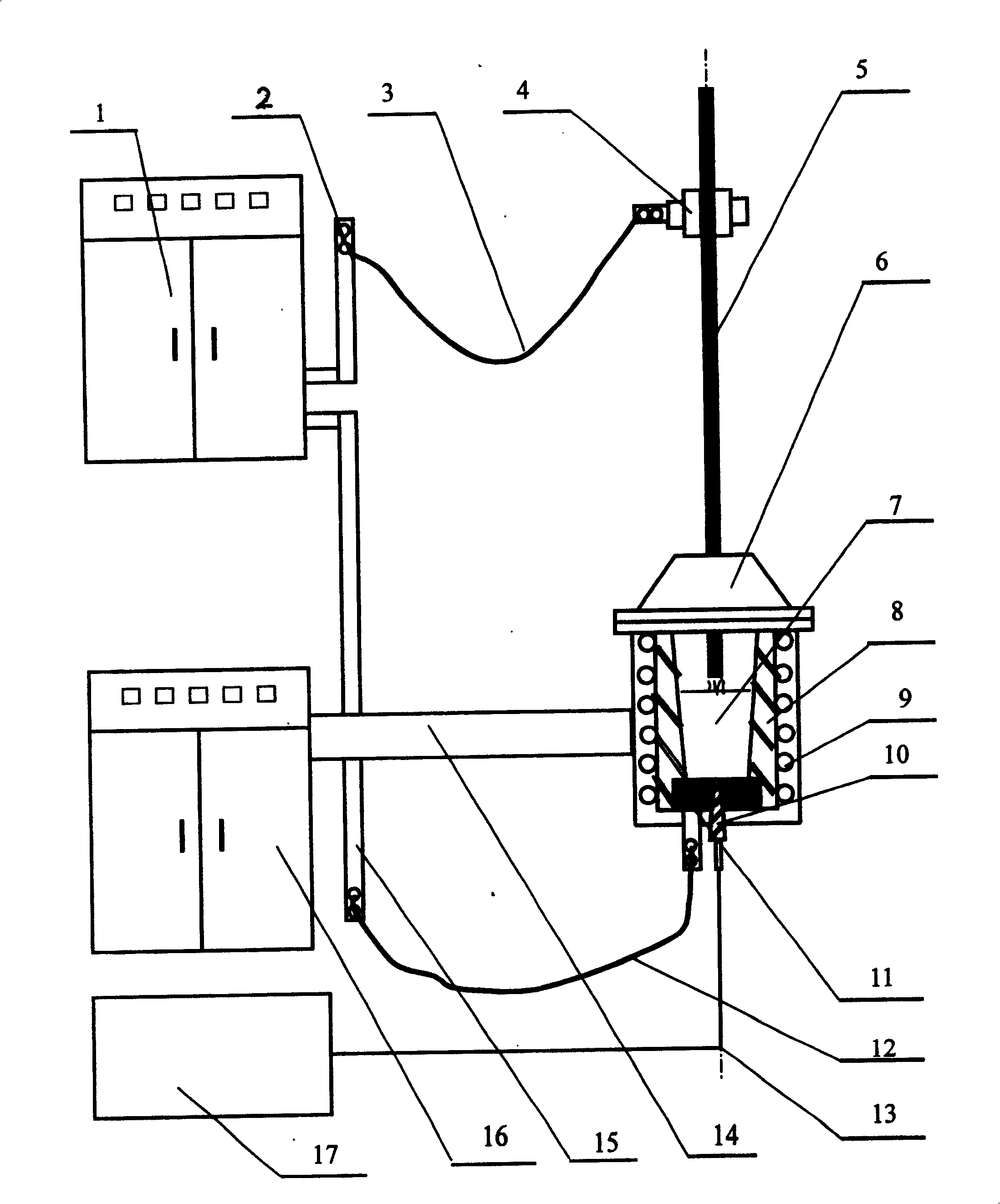DC arc induction furnace
A DC arc and induction furnace technology, applied in the field of induction furnaces, can solve problems such as increased production cost, longer smelting time, and reduced furnace age, and achieves the effect of preventing scrap steel from bridging, shortening smelting time, and ensuring the quality of molten steel
- Summary
- Abstract
- Description
- Claims
- Application Information
AI Technical Summary
Problems solved by technology
Method used
Image
Examples
Embodiment Construction
[0009] As shown in the drawings, the DC arc induction furnace of the present invention includes a rectifier cabinet 1, a top cathode copper bar 2, a top cathode water-cooled cable 3, a holder 4, a top cathode 5, a furnace cap 6, a crucible 8, an induction coil 9, Bottom anode conductive brick 10, bottom blowing vent plug 11, bottom gas pipe 12, intermediate frequency conductive copper bar and water-cooled cable 13, bottom anode water-cooled cable 14, bottom anode copper bar 15, intermediate frequency power supply cabinet 16. An induction coil 9 is arranged on the outer wall of the crucible 8 of the DC arc induction furnace, and the induction coil 9 is connected to the power supply of the intermediate frequency power supply cabinet 16 through an intermediate frequency conductive copper bar and a water-cooled cable 13, and can inductively heat the charge in the crucible during smelting; at the bottom of the furnace Install furnace bottom conductive brick and high current bottom a...
PUM
 Login to View More
Login to View More Abstract
Description
Claims
Application Information
 Login to View More
Login to View More - R&D
- Intellectual Property
- Life Sciences
- Materials
- Tech Scout
- Unparalleled Data Quality
- Higher Quality Content
- 60% Fewer Hallucinations
Browse by: Latest US Patents, China's latest patents, Technical Efficacy Thesaurus, Application Domain, Technology Topic, Popular Technical Reports.
© 2025 PatSnap. All rights reserved.Legal|Privacy policy|Modern Slavery Act Transparency Statement|Sitemap|About US| Contact US: help@patsnap.com

